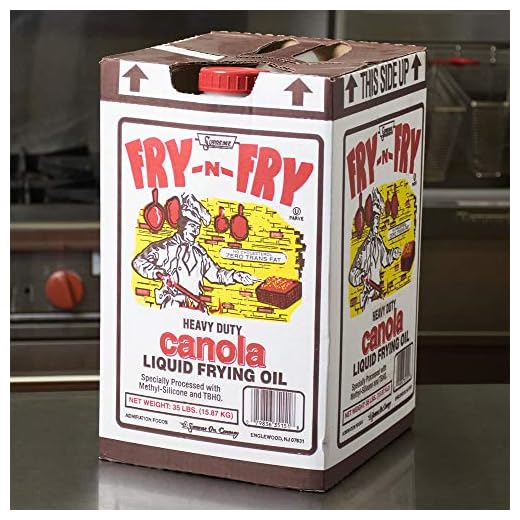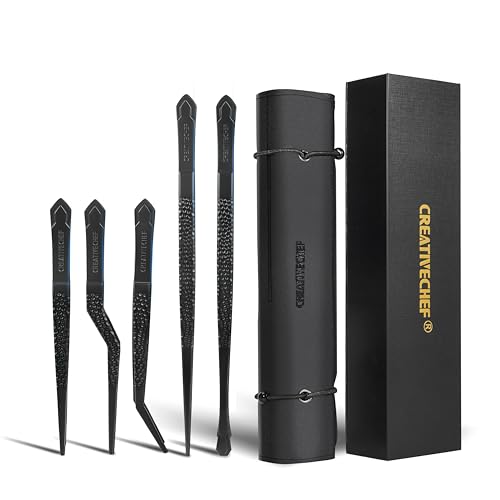



Have you ever wondered if you can add oil to an air fryer? With the growing popularity of air fryers, it’s natural to question their versatility and functionality. Air fryers are hailed as a healthier alternative to deep frying, but does that mean you can’t use any oil at all? The answer is not as straightforward as you might think.
An air fryer uses hot air to cook food, circulating it around the cooking chamber to provide a crispy exterior with little to no oil. This cooking method is great for reducing the calorie and fat content of your favorite fried foods. However, in some cases, adding a small amount of oil can enhance the flavor and texture of certain dishes.
While you can technically add oil to an air fryer, it’s important to use caution and follow the manufacturer’s instructions. Most air fryers have specific guidelines on the type and amount of oil you can use. Too much oil can cause smoke and unpleasant smells, and it can also affect the cooking time and the final result of your food.
To add oil to an air fryer, you should consider using a spray bottle or brush to apply a thin layer of oil onto the surface of your food. This way, you can achieve a similar texture to deep-fried foods without the excess oil. It’s also advisable to choose oils with high smoke points, such as canola, avocado, or peanut oil, which can withstand the high temperatures of air frying.
Ultimately, the choice to add oil to your air fryer depends on your personal preference and the type of food you’re cooking. It’s worth experimenting and finding the right balance of oil and air frying for your desired results. Whether you prefer a completely oil-free cooking experience or want to use a small amount of oil for taste and texture, an air fryer offers flexibility to suit your needs.
Benefits of Adding Oil to an Air Fryer
While air fryers are often prized for their ability to cook crispy, delicious food with little to no oil, there are some benefits to adding a small amount of oil to your air fryer recipes. Here are a few reasons why:
- Enhanced Flavor: Adding a small amount of oil can help to enhance the flavor of your food. Oil can carry and distribute flavors from herbs, spices, and other ingredients, resulting in a more flavorful and delicious dish.
- Improved Texture: While air fryers can create a crispy exterior, some foods may still benefit from a light coating of oil to achieve the desired texture. Adding a small amount of oil can help to promote browning and create a crunchier texture in certain dishes.
- Prevent Dryness: Some foods, especially lean proteins or certain vegetables, can become dry when cooked in an air fryer without any oil. Adding a small amount of oil can help to prevent dryness and keep your food moist and juicy.
However, it’s important to note that adding too much oil can negate the health benefits of using an air fryer. It’s recommended to use a small amount and apply it evenly to your ingredients for the best results. Additionally, some foods naturally contain oils and may not require any additional oil when using an air fryer.
Ultimately, the decision to add oil to an air fryer is a personal preference. Experimenting with different amounts and types of oils can help you achieve the perfect balance between flavor and texture for your favorite air fried dishes.
Types of Oil That Can Be Used
When it comes to using oil in an air fryer, it is important to choose the right type of oil that will not only enhance the flavor of your food but also withstand the high heat of the air fryer. Here are some common types of oil that can be used:
| Oil | Smoke Point | Best Used for |
|---|---|---|
| Canola Oil | 400°F (204°C) | Frying, baking |
| Vegetable Oil | 400°F (204°C) | Frying, roasting |
| Peanut Oil | 450°F (232°C) | Frying, stir-frying |
| Avocado Oil | 520°F (271°C) | High-temperature cooking |
| Coconut Oil | 350°F (177°C) | Baking, frying |
These oils have high smoke points, which means they can withstand the high temperatures typically used in air fryers without breaking down and producing smoke. They also provide good flavor to the food.
It’s important to note that some oils, like olive oil, have low smoke points and may not be suitable for air frying at high temperatures. So, it’s always best to check the smoke point of the oil before using it in an air fryer.
Potential Issues with Adding Oil
While adding oil to an air fryer can enhance the flavor and texture of your food, it is important to consider some potential issues that may arise.
1. Smoke and Odor:
When oil is heated, it can produce smoke and strong odors. Since air fryers use hot air circulation to cook food, adding oil can increase the chances of smoke and odors filling your kitchen. This can be especially problematic if you don’t have proper ventilation.
2. Increased Cooking Time:
Oil can affect the cooking time in an air fryer. Adding oil to certain foods can lead to longer cooking times. The oil creates a barrier around the food, preventing the hot air from directly reaching the surface and cooking it quickly. This can result in food taking longer to cook and potentially becoming overcooked on the outside before being fully cooked on the inside.
It is important to carefully consider these potential issues when deciding whether or not to add oil to your air fryer. While oil can enhance the taste and texture, it may also impact the cooking process and create additional smoke and odor. Experimentation and moderation are key to find the right balance for your desired outcomes.
Tips for Adding Oil to an Air Fryer
Adding oil to an air fryer can enhance the flavor and texture of your favorite fried dishes. However, it’s important to follow some guidelines to ensure you use the right amount and type of oil. Here are some tips for adding oil to an air fryer:
1. Choose the Right Oil
Not all oils are suitable for air frying, as some have low smoke points and can break down at high temperatures. Opt for oils with high smoke points, such as canola, peanut, or avocado oil. These oils can withstand the high heat of the air fryer without smoking or creating a burnt taste.
2. Use a Spray Bottle
Instead of pouring oil directly into the air fryer, consider using a spray bottle. This allows you to distribute the oil more evenly and control the amount you use. Fill a spray bottle with your chosen oil and lightly coat the food before placing it in the air fryer. This method helps reduce the overall oil content while still achieving a crispy texture.
3. Avoid Excess Oil
While adding some oil is essential for achieving desired results in an air fryer, it’s important not to use too much. Excess oil can lead to greasy and soggy food. Aim for a light coating, and if needed, add more oil during the cooking process if you notice the food is becoming dry.
4. Consider Oil Alternatives
If you prefer to minimize the use of oil in your air fryer, there are also alternatives you can try. For example, using cooking spray or brushing a thin layer of oil with a pastry brush can still provide a similar effect without loading your food with excess oil.
| Oil Type | Smoke Point (°F) |
|---|---|
| Canola Oil | 400 |
| Peanut Oil | 450 |
| Avocado Oil | 520 |
When it comes to adding oil to an air fryer, it’s all about finding the right balance between flavor and achieving a crispy texture. By following these tips, you can enjoy delicious fried foods with less guilt and mess.
Alternatives to Adding Oil
If you prefer not to use oil in your air fryer, there are several alternative methods you can try to achieve crispy and delicious results:
1. Parchment Paper or Silicone Liners
Using parchment paper or silicone liners can help prevent sticking and provide a non-stick surface for your food. Simply place a sheet of parchment paper or a silicone liner in the air fryer basket before adding your ingredients. This method works well for items like chicken tenders, fries, or breaded vegetables.
2. Dry Rubs and Spices
Instead of adding oil, you can season your food with dry rubs and spices to enhance its flavor. Mix your desired herbs, spices, and seasonings in a bowl and evenly coat your ingredients before placing them in the air fryer. This method works particularly well for meats like chicken, pork, or beef.
Tip: Make sure to pat dry any moisture from your ingredients before applying the dry rubs or spices to ensure maximum crispiness.
Additionally, certain ingredients like breadcrumbs, grated cheese, or even crushed cornflakes can provide a crunchy texture without the need for oil.
Please note: Some air fryer models may recommend using a small amount of oil when cooking certain types of foods for optimal results. Always refer to your specific air fryer’s instruction manual for guidance.
By experimenting with these oil-free alternatives, you can still enjoy a wide range of crispy and flavorful dishes using your air fryer.
Q&A
Can you add oil to an air fryer?
Yes, you can add oil to an air fryer. It is recommended to use a small amount of oil, about 1-2 tablespoons, depending on the recipe and the size of the food you are cooking. Adding oil can help improve the taste and texture of your food, giving it a crispy and golden finish.
How much oil should I add to an air fryer?
The amount of oil you should add to an air fryer depends on the recipe and the size of the food. In general, it is recommended to use about 1-2 tablespoons of oil. However, you can adjust this amount based on personal preference and the desired level of crispiness. It is important not to use too much oil, as it can cause the food to become greasy and lose its crispy texture.
What type of oil is best for an air fryer?
When it comes to choosing the best oil for an air fryer, it is recommended to use oils with a high smoke point, such as canola, vegetable, or peanut oil. These oils can withstand the high temperatures of an air fryer without breaking down or producing smoke. Avoid using oils with low smoke points, such as olive oil, as they may not be suitable for air frying and can leave a strong taste.
Why should I add oil to an air fryer?
Adding oil to an air fryer can help enhance the flavor and texture of your food. Oil acts as a conductor of heat, promoting even cooking and browning. It also helps create a crispy and golden exterior, similar to deep frying, but with less oil. However, it is important to use oil in moderation, as excessive amounts can make the food greasy and unhealthy.
Can I use cooking spray instead of oil in an air fryer?
Yes, you can use cooking spray instead of oil in an air fryer. Cooking spray is a convenient option as it provides a light and even coating of oil on the food. It can help achieve a crispy texture without using a lot of oil. However, it is important to choose a cooking spray that is specifically designed for high-temperature cooking, as some cooking sprays may not be suitable for use in an air fryer.







